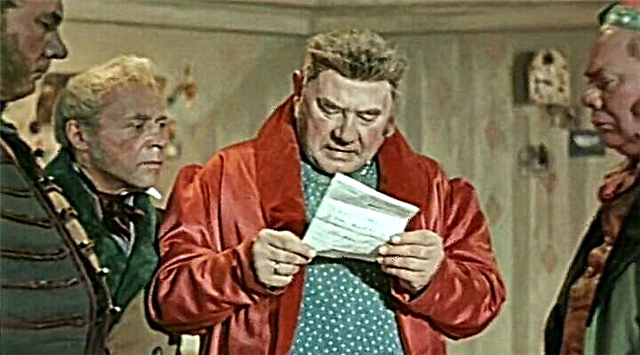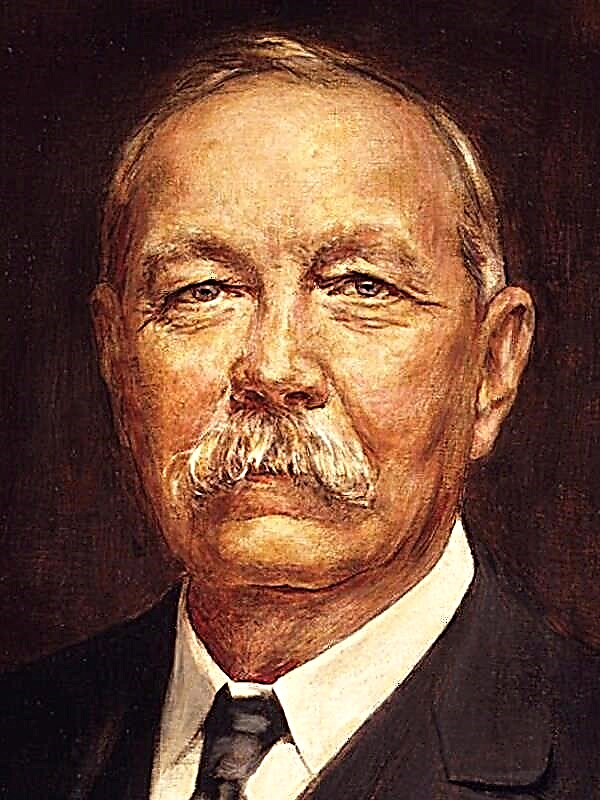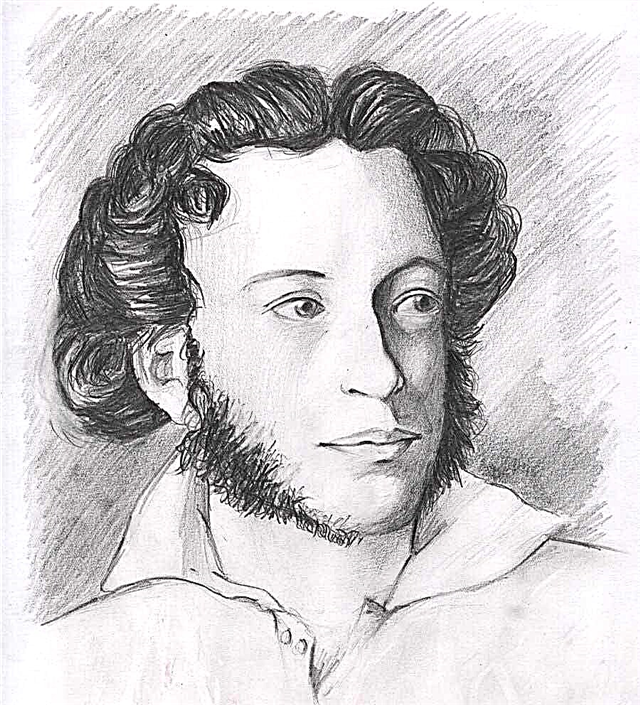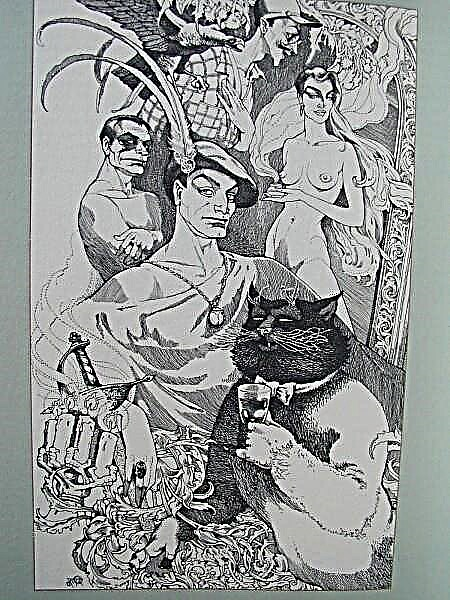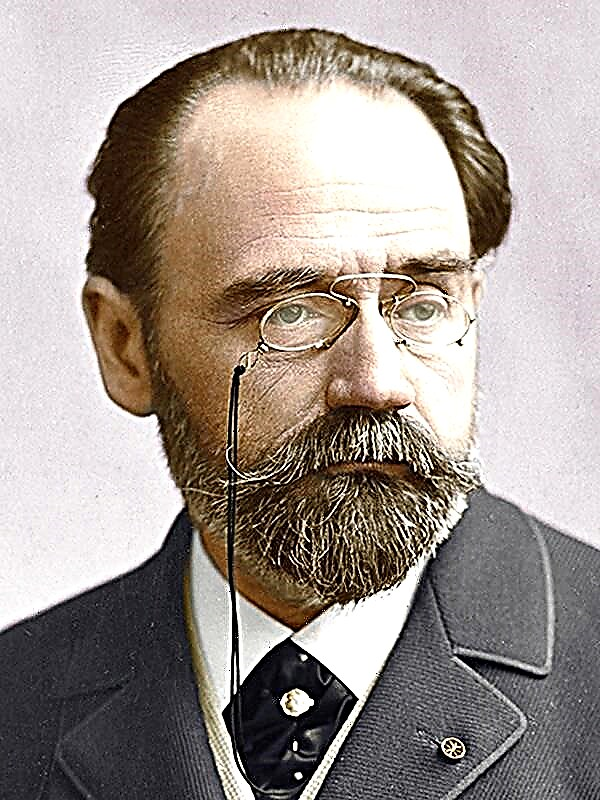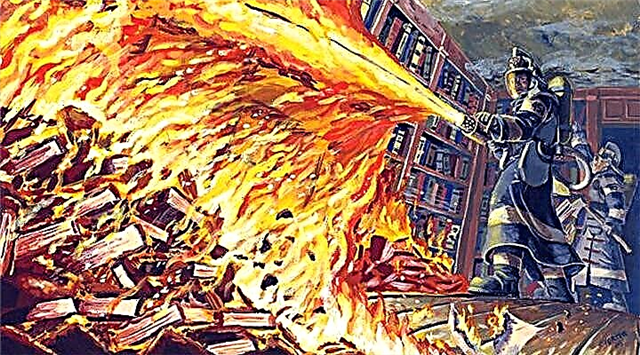A young man named Ernest writes a letter to Doravra, his beloved, in which he talks about his past, about how, when he first saw her, he was struck by her beauty, which wounded him in the heart. The girl replies with a joke: since her eyes cause him pain, then you do not need to look at each other. Ernest, however, does not lose hope of reciprocity, for it is promised both by the similarity of their morals, and the frequently encountered views ...
But the fear of angry beloved with excessive impudence interrupts Ernest's fervent confessions, and he humbly promises to leave forever, taking with him only unhappy love. Dorara jokingly asks him to stay, and Ernest, not knowing whether to rejoice in this letter or to see in it the indifference of Dorava, replies that he is ready to submit to it in everything, even after being silent forever. But he still cannot bear the lack of reciprocity. No, it’s better for him to leave.
Ernest’s feelings do not go unanswered: Dorava confesses his love to him, begging his “tormentor” to spare her honor and, having expelled passion from her heart, become her just a friend. In response, Ernest writes that if a person is deprived of his soul by taking away love, then what remains for him? How could she, virtue herself, decide that he wants to seduce her ?! But if Doravra orders him to destroy all feelings, taking away all hope, then his life will die: he will commit suicide. Horrified, Doravra tries to dissuade Ernest. She loves him so much that she is ready to belong only to him until her death. If Ernest dies, then she will take her own life. This admission convinces Ernest that he is loved. Happiness overwhelms his heart, in which, nevertheless, there will always be a place for virtuous reverence.
Unable to keep his feelings secret, Doravra writes about everything to his girlfriend Pulcheria. She advises to be careful and not to forget about honor.
Conflicting feelings tear Ernest's soul: his dream has come true, but now he longs for more, although he will never go against the rules prescribed by Dorava. In response, Doravra writes that if Ernest had more insolence, he would have managed to overcome her excessive timidity, instilled in strict education. But how can she learn to pacify heart disturbances that could damage her honor? Ernest reassures Doravra by praising her chastity. However, complete happiness in love, even short-term, is so important for loving hearts - why does she shy away from his “innocent kisses”?
Finally, Ernest achieves his goal: he kissed Doravra. The young man feels himself at the height of bliss, although he decided never to cross the boundaries of honor and reverence.
After long wanderings, a friend of Ernest Hippolytus returns. Ernest is extremely happy, because friendship is sacred to him. Having learned about the feelings of a friend, Hippolytus advises him to obey reason, despise dangers and promises his help. Ernest introduces him to Doravra and Pulcheria, and the last cheerful and judicious Hippolytus makes a very good impression.
Soon, Ernest was appointed secretary of the ambassador to Paris. Learning of this from his desperate letter, Doravra falls ill with grief. Pulcheria, having confessed to Ernest that she had facilitated his departure, begs him to leave for the sake of Dorava, because their feelings can be made public, damaging her. And one who truly loves must be able to endure the blows of fate and sacrifice himself. At first, Ernest did not heed this moralizing, but the belief that “indispensable constancy overcomes all dangers” helps him in his misfortune.
At first, only memories of the past console Ernest. But time and new experiences reassure him, and he enthusiastically begins to describe Paris, although the frivolity of the French, who do not honor virtues, irritates him. At the first opportunity, he leaves for London. Meanwhile, Hippolytus and Pulcheria confess their love to each other - the desire to help friends brought them closer together, inspiring a tender and calm feeling.
Suddenly a letter arrives from Doravra, in which she bitterly reproaches Ernest. It turns out that his wife arrived, whom he considered dead. Desperate, Ernest asks Dorava for permission to die. She, having already reconciled with a new misfortune, writes that he does not have the right to do so - his death will kill too many.
Returning home, Ernest meets his wife and, yielding to her desire, again converges with her. With a feeling of remorse, he confesses to Doravre, begging to forgive him. She replies that it is his duty to love a wife with carnal love, and let her love Dorara with pure spiritual love. A strange feeling, a mixture of joy and grief, overwhelms the soul of Ernest. And, having again assured Doravra of his love, he indulges in melancholy ...
But living without each other is unbearable: Ernest and Doravra meet. He passionately embraces her, says that everything that he is forced to give to his wife can only belong to Doravra, she should only wish. The offended girl declares that it is better for her to leave her beloved forever and not interfere with his family life, even if the thought of this breaks her heart. Ernest offers her to run with him and almost succeeds: Doravra agrees. But Ernest’s wife, having deceived his secret by deception, tells about everything to Doravre’s father, and he persuades his daughter to get married in order to save his almost ruined reputation.
Hippolytus, wanting to help a friend, advises Doravre to deceive his father: he, Hippolytus, will marry her, but Ernest will live with her. But Ernest rejects this plan, because he promised the father of Doravra to forget about it forever. In his soul, he cannot reconcile himself to the fact that rock and the cruel laws of virtue deprived him of happiness. Dorara does not withstand separation: she writes that she is ready to surrender to Ernest. The content of the message becomes known to her father - they hurried up with the wedding, and soon Doravra had to notify her beloved that she belonged to another.
In order not to disturb Doravre anymore, Ernest retires “to the desert”, leaving all his fortune to his wife. Here he gradually calms down and behaves quite like a “philosopher”, discussing good and evil, man’s inclinations and qualities, freedom of choice and fate. Hippolytus cannot reconcile with the fact that his friend became a hermit: he is trying to convince Ernest of the need to live among people, acting for their good. But he, not wanting to leave the path of severe virtue, even refuses Hippolytus’s offer to raise his children (Hippolytus and Pulcheria got married shortly after Ernest left).
Meanwhile, Doravra comes to Ernest and throws herself into his arms. But he, having already learned to humble his passions, manages to resist: the idea that a beloved for his sake will forget about his honor, terrifies him. In a letter to a friend, Ernest talks about the past minutes, complaining of the “cruel virtue” appointed by the rock to torment the human race. Hippolytus replies that blaming the will of rock for all is the lot of the weak, for a rational person relies only on sound reasoning, and "what cannot be, then there cannot be without any fate."
When the news comes that Doravra was widowed, Hippolytus offers Ernest the place of her son’s tutor. He resolutely refuses, preferring not to compromise Dorava and not to tempt himself, because he is still married. Although persistence in matters of virtue does not allow him to be with his beloved, Ernest believes that pure, spotless love will remain with them forever, until the end of their lives.
But nothing lasts forever in this world: Doravra, who had loved Ernest for seven years, marries another. And Ernest, having overcome the pangs of jealousy and a thirst for revenge, forgives her and, reflecting on the power of fate over man, sadly remarks: “My hot love ended in very cold reasoning.”


